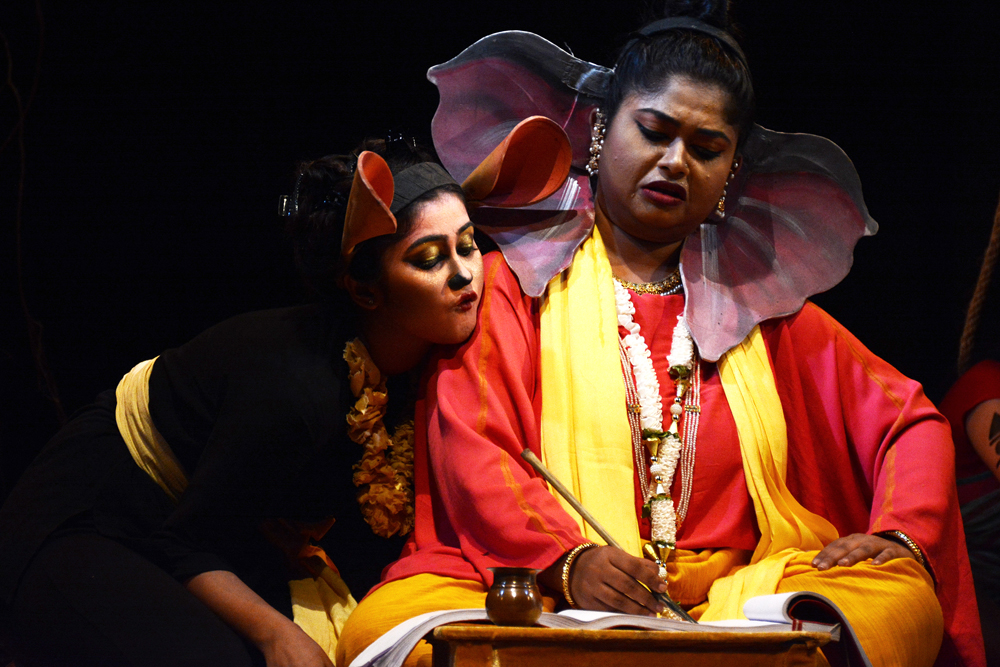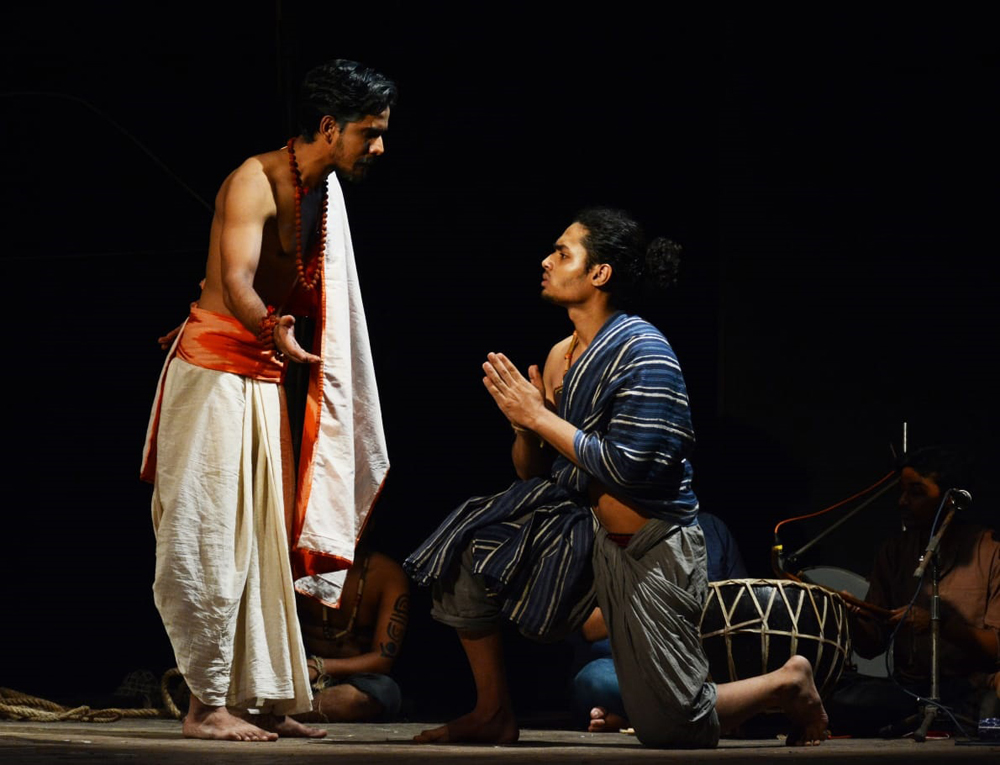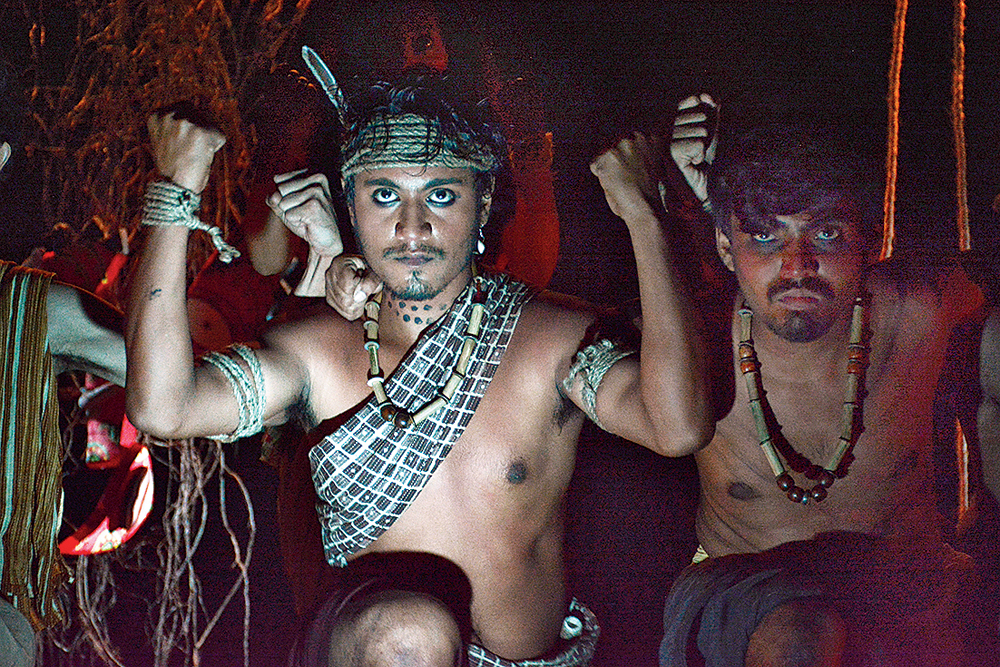When Dronacharya asks Eklavya for his right thumb, the young man offers it readily. But despair is writ all over his face. The lights go dim, the actors on stage stand still and the audience sits in silence. You can almost hear the cogs in their minds turn as they try to negotiate the gap between Eklavya’s action and the expression on his face.
This is a scene from a show of the play, Eklavya Ubach, being staged at Girish Mancha in north Calcutta. Says Gagandeep (she goes by one name), the director of the play, “Eklavya sacrificed out of helplessness. Had he protested, he may have been murdered.” Some scenes ago, Ganesh was seen telling Dronacharya, “There is no character in your narrative who is a Sudra and has not had to pay for it.” In her play, Gagandeep, who teaches drama at Rabindra Bharati University (RBU), explores a slew of what-ifs.

Ganesh with his vahana, the mouse Picture by Sandip Kumar
The playwright is Kuldeep Kunal who is based in Delhi. He says, “Earlier, I would not be moved by such issues as I did not have to face them. But when I saw my friends, their experiences, it affected me.”
When Kunal wrote Eklavya Ubach in 2011, he was looking for a mythological character whose life would speak to the current times. “People think caste differences are a thing of the past. I wanted to set straight the record,” he says. The play was initially written in Hindi and has since been translated and performed in Kannada, Assamese and English.
Arijit Pyne, who has a master’s in theatre from RBU, says, “The death of Rohith Vemula, the case of BJD MLA Saroj Kumar Meher who forced a tribal engineer in Odisha to do sit-ups, or even the Kerala case wherein a school announced there would be wristbands to distinguish lower caste children are just few such cases. They indicate we are still suffering from caste fever and that’s why this play is more relevant than ever.”

Dronacharya with Arjun in the play, ‘Ekalavya Ubach’ Picture by Sandip Kumar
Throughout the play the backdrop is news that made headlines — upper-caste members pour kerosene into a well used by Dalits in Madhya Pradesh; Odisha boy carries his dead mother on a bicycle after villagers refuse to help because of their caste; the suicide note of Payal Tadvi. It seems when Gagandeep started with this production, most of her team members were in denial. According to her, they thought these things did not exist in Bengal or Calcutta. But while she was choosing the cast for the play, she was clear about one thing. She says, “For me, it was not just about the acting skills but also about them being open-minded.” At some point, the team decided not to use individual surnames.
Debdutta Raha — who plays Arjun and is also a student of RBU — says the point of the play was to use the Mahabharata to find answers to questions that exist to date, and force the audience to think and rethink. He says, “I too was in denial before this play. But as we researched and interacted with the public to know what they think about Eklavya, the answers made me realise I was living in a bubble.” He adds, “Probably one play cannot solve all the problems of oonch-neech, jaat-paat, but we have to make the people think about it.”
Long after you leave the play, the play does not quite leave you. The what-ifs swirl in the head. The voice of Eklavya telling his guru, “Main Adivasi Eklavya, mujhe pata hai apna apradh, gurudev... I am Eklavya, an Adivasi, and I am well aware of my crime, O my teacher.”












